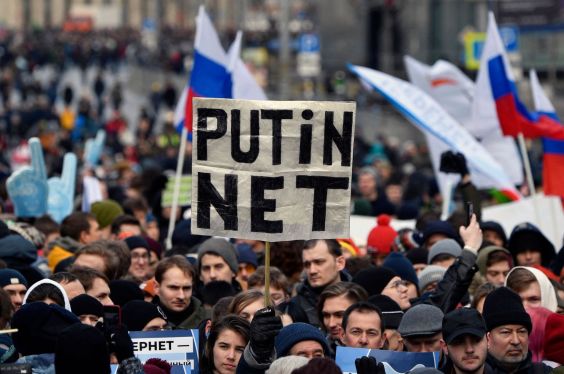The Russian government has taken another step in its ongoing effort to restrict online freedom, blocking the encrypted email provider Skiff. This move comes just three years after similar services like Proton Mail and Tutanota were blocked by the authorities.
Background on the Block
Last Wednesday, Roskomsvoboda, a digital rights organization based in Russia, reported that an unknown state organization had ordered the block of Skiff. The organization’s technical director, Stanislav Shakirov, confirmed with TechCrunch that the blocking was indeed in effect and that it was being carried out by Internet Service Providers (ISPs) on their equipment.
The Effect of the Block
Shakirov explained that the blocking is done through a URL mask (*.skiff.com) and IP addresses. This means that Russian users who do not use Virtual Private Networks (VPNs), browser plugins, or censorship bypass tools like Tor or Psiphon will be unable to access Skiff’s services.
According to Skiff’s chief executive, Andrew Milich, the company has seen an 81% decrease in traffic from Russia since last week. This decline is likely due to the block, as users in Russia are no longer able to access the service.
Skiff’s Response
Milich shared a video with TechCrunch showing a user in Russia trying to log on to Skiff, which ends with the user seeing a connection error. He also confirmed that he had received several complaints from users in Russia who were unable to use the service.
In an email to TechCrunch, Milich explained the motivation behind creating Skiff: "I started Skiff with a more private vision for the internet, where our personal information is not shared, bought, and sold." He also highlighted his co-founder Jason Ginsberg’s family history, which dates back to the Soviet Bloc.
Skiff’s User Base in Russia
According to Skiff, the company has half a million users in Russia. Milich emphasized that despite the block, the company remains committed to its mission of building products for private communication and freedom.
The Rise of Censorship in Russia
This move by the Russian government is part of an ongoing trend of restricting online freedom. In 2019, Proton Mail and Tutanota were blocked in Russia, highlighting the country’s growing intolerance towards encrypted email services.
President Vladimir Putin’s regime has been criticized for its increasing censorship efforts, which have led to restrictions on social media platforms, messaging apps, and other online tools.
No Comment from Russian Authorities
The Russian Embassy in Washington, D.C., did not respond to a request for comment. Similarly, Roskomnadzor, the country’s censorship authority, failed to provide a response when contacted by TechCrunch.
Conclusion
The block of Skiff is another example of Russia’s growing efforts to restrict online freedom and limit access to encrypted communication services. This trend has significant implications for users in Russia who rely on these services for secure communication.
As the digital landscape continues to evolve, it remains essential for governments to balance their security concerns with individual rights to online freedom.
Related Topics:
- Censorship: The practice of suppressing or prohibiting free expression and information.
- Cybersecurity: The protection of computer systems and networks from unauthorized access, use, disclosure, disruption, modification, or destruction.
- Digital Rights: The set of rights that protect individuals’ ability to use digital technologies for personal and professional purposes.
- Internet Freedom: The right to access and express oneself online without fear of censorship or surveillance.
Recent Developments in Online Censorship:
- Russia’s Block on Proton Mail and Tutanota: In 2019, Russia blocked the encrypted email services Proton Mail and Tutanota, marking a significant escalation in the country’s efforts to restrict online freedom.
- China’s Great Firewall: China has maintained its strict control over online content through its "Great Firewall" system, which blocks access to certain websites and apps.
What You Can Do:
- Stay Informed: Stay up-to-date on developments related to online censorship and digital rights.
- Use Secure Communication Tools: Use encrypted communication tools like Proton Mail or Tutanota to protect your data and communications.



